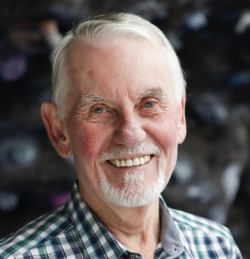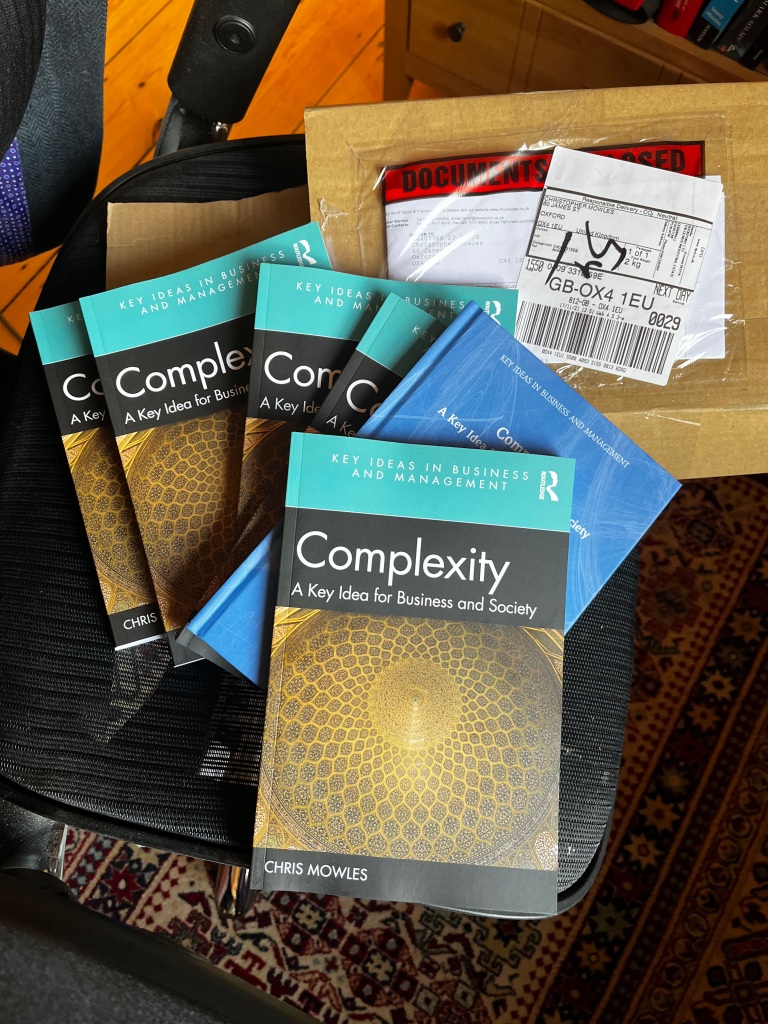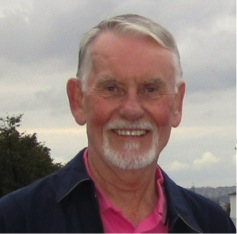I am writing to let you know that I heard from Ralph Stacey’s family on Sunday that Ralph died peacefully in hospital on Saturday night after a short illness over the summer.
Many of you who follow this site may already know a lot about Ralph and will have met him in person. For those who didn’t know him, here is a brief obituary.
Ralph was trained as an economist graduating with his PhD from LSE in 1967. He came to Hatfield Polytechnic in 1985 having worked in corporate planning for the construction company John Laing, and having briefly been an investment analyst in the City of London. In the same year that the polytechnic became a university, 1992, Ralph was made a Professor of Management.
Ralph was one of the pioneers of adopting analogies from the sciences of complexity into theories exploring group dynamics in organisations. He published his first book in 1990, and went on to write 12 in all, including a textbook which is now in its 7th Edition. Just as important as his publishing record is his founding of the Complexity and Management Centre in 1995, and the establishment of group supervision for doctoral students. He combined the group approach with the development of a conceptual framework he, Doug Griffin and Patricia Shaw termed complex responsive processes of relating, a radical critique of systems theories, into the Doctor of Management programme. As those of you following this blog will know, the DMan is still running 20 years later and has just produced its 71st doctoral completion.
He was a scholar with a global reputation and was invited to speak all over the world. He made contributions to the field of organisational theory, to the development of experience-based pedagogy, and to the thinking of the Institute of Group Analysis where he trained as a group analyst in the 1990s. Ralph ran clinical groups in the NHS as well as groups within the university of Hertfordshire, including working with management teams.
Ralph continued to have a part time role as a supervisor on the DMan programme into his mid-70s and only finally retired three years ago. Some of you reading this post will have attended the retirement event at Roffey Park and experienced the great esteem in which he was held by everyone present.
Those of you who have met him will know that Ralph was a great story-teller. Despite his genius he was self-deprecating; he was kind, generous and provocative. He was also, at times, fantastically stubborn.
Ralph was a figure of great stature in the academic world. He was a loyal employee of HBS for over 30 years. But above all he was a great colleague, and with his immense gifts and deep wisdom he was very supportive of everyone who sought his help. Ralph helped us understand the world differently, as complex and paradoxical, and through his insights he helped us better understand ourselves. For many of us, he taught us how to think critically and reflexively.
We will be thinking of ways of continuing to discuss his legacy in the coming weeks and months.
If you would like to say something about Ralph and what he meant to you I have created a tribute page here.



